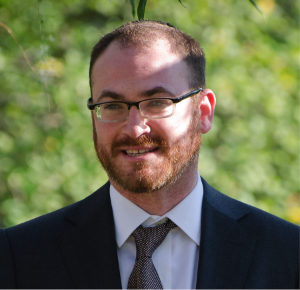
Dec. 7, 2017
Why is Trump’s declaration of Jerusalem as Israel’s capital a big deal? A VCU professor of Judaic studies explains
Share this story
On Wednesday, President Donald Trump announced that he was reversing seven decades of U.S. foreign policy and would recognize Jerusalem as the capital of Israel — a move that prompted concerns it may unsettle the Middle East and derail efforts to resolve the Israeli-Palestinian conflict.
David Weinfeld, Ph.D., the visiting professor of Judaic studies in the School of World Studies in VCU’s College of Humanities and Sciences, said Trump’s announcement is being seen by Israel’s right wing as unflinching support from the U.S., but that it has horrified Israel’s left and has been taken as an insult by the Palestinians.

What makes Trump's announcement that the U.S. will recognize Jerusalem as Israel's capital so significant? And what do you see as the potential impact?
It is too soon to tell whether Trump’s announcement is significant. Jerusalem is a city sacred to three major religions. Jews have a millennia-old connection to Jerusalem that is both historical and religious, documented in the Hebrew Bible. Christians and Muslims also have a powerful connection to the city, in particular Palestinian Arabs whose families have lived there for centuries.
Politically, west Jerusalem became the official capital of the modern state of Israel in 1949, when the Knesset, Israel’s government, was moved there from Tel Aviv following the first Arab-Israeli war. Israel conquered east Jerusalem from Jordan in 1967, uniting the two halves of the city. While many countries don’t “officially” recognize Jerusalem as Israel’s capital, foreign leaders still meet with Israeli officials in government buildings in west Jerusalem. Trump’s recognition does little to change that. For political and security reasons, the United States has kept its embassy in Tel Aviv, which is symbolic of the divided nature of Jerusalem and the ongoing Israeli-Palestinian conflict. Sometimes symbolism matters, and certainly this declaration, and potentially moving the embassy to Jerusalem, is designed to please some and enrage others.
How is this move being seen by Israel? And how is it being seen by the Palestinians and the rest of the Middle East?
The Israeli Jewish population remains divided. The growing and emboldened right wing is applauding, thrilled to have uncompromising U.S. support. Many within the shrinking and embattled left wing are horrified. People on all sides might support Trump’s declaration in principle, and simply as a matter of fact, but wonder why he should needlessly provoke Palestinians, as well as the broader Muslim world, and cause more harm to the severely weakened peace process. Palestinians and other Arabs and Muslims undoubtedly see it as another insult to their connection with Jerusalem and further evidence that the United States cannot act as an honest broker in the Middle East. Palestinians have already erupted in protest and are clashing with Israeli forces in East Jerusalem, the West Bank and Gaza.
Subscribe to VCU News
Subscribe to VCU News at newsletter.vcu.edu and receive a selection of stories, videos, photos, news clips and event listings in your inbox.







